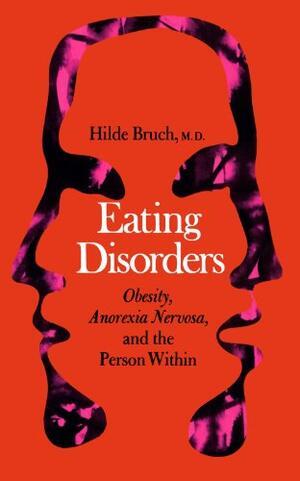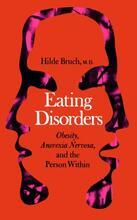Hilde Bruch
Hilde Bruch’s seminal work on eating disorders contributed significantly to understanding and treatment of the diseases in the 1970s. Bruch earned her doctorate at the University of Freiberg in 1929 but emigrated in 1933 to escape rising German anti-Semitism. Settling in New York, she began groundbreaking work on obesity in children in 1937 before shifting her focus to psychiatry, teaching at Columbia University before accepting a position at Baylor College of Medicine in Houston, TX, in 1964, where she continued to teach throughout her career. Her 1973 book, Eating Disorders: Obesity, Anorexia Nervosa, and the Person Within, is considered a definitive work on the subject. Despite suffering from Parkinson’s disease, she continued her therapeutic practice until her eightieth birthday.
Hilde Bruch is recognized as one of the world’s leading authorities on emotional problems relating to eating, thanks to her research on obesity in children and her innovative approach to the treatment of anorexia nervosa.
Early Life and Education
Born on March 11, 1904, in the small German town of Dülken on the Lower Rhine, Hilde Bruch was the third of seven children. Her father, Hirsch Bruch, a successful cattle dealer, and her mother, Adele (Rath) Bruch, belonged to the local Jewish community. Like her two sisters and four brothers, Hilde attended a one-room Jewish elementary school before commuting to a girls’ high school in a nearby town in order to prepare for university. Although she wanted to become a mathematician, the uncle who financed her education after her father’s death convinced her that medicine was a more practical choice for a Jewish woman. She studied in Würzburg, Freiburg, Cologne, and Munich, and received her doctorate in medicine from the University of Freiburg in 1929.
Research
After obtaining her medical license, Bruch accepted an assistantship at the University of Kiel, and in 1930, she transferred to the University of Leipzig, where she continued her research and training until 1932. Due to antisemitism, she gave up her aspirations for an academic career in Germany and established a private pediatric practice near Düsseldorf. Soon after the April 1, 1933, anti-Jewish boycott, she decided to immigrate to England.
Bruch worked in London for a year at the East End Maternity Hospital and the Child Guidance Clinic. She left for the United States in September 1934, and quickly found a job at Babies’ Hospital in New York, obtaining her pediatric license in 1935 and her American citizenship five years later. On a fellowship from the Josiah Macy, Jr., Foundation, she began her groundbreaking research on obesity in children in 1937. Between 1941 and 1943, she studied psychiatry at Johns Hopkins University in Baltimore and underwent psychoanalytic training with Frieda Fromm-Reichmann and Harry Stack Sullivan. Upon returning to New York, she established a private practice in psychoanalysis and became affiliated with the College of Physicians and Surgeons at Columbia University, where she was appointed clinical associate professor in 1954 and professor in 1959. In 1964, she accepted a position as professor of psychiatry at Baylor College of Medicine in Houston, Texas, where she remained even after her retirement in 1978. Before leaving New York, she had purchased a Rolls-Royce because she refused to “kowtow to Texas Cadillacs.”
Legacy
Hilde Bruch was an outspoken individualist who relished her independence and rebelled against any form of authoritarianism. She helped rescue her mother and several of her siblings from Nazi Germany, but many members of her family perished during the Holocaust. In 1946, she adopted her orphaned nephew, Herbert Bruch, who had survived the war in England. Although she returned for several visits, she felt extremely uncomfortable in postwar Germany.
Bruch published numerous scholarly and popular studies on obesity, schizophrenia, and psychotherapy training, but over the years her research focused increasingly on the underlying causes of anorexia nervosa. Her collected work Eating Disordersis considered a definitive work on this subject.
Although afflicted with Parkinson’s disease, she continued to see patients and play an active role as an emeritus faculty member until her eightieth birthday. She was the recipient of numerous academic honors and awards, including the President’s Citation for Meritorious Contributions to the Clinical Services, Baylor College of Medicine (1978); the William A. Schonfeld Award for Contribution to Psychiatry, American Society for Adolescent Psychiatry (1978); the Golden Doctoral Diploma, Medical Faculty of Albert-Ludwig University of Freiburg (1978); the Mount Airy Gold Medal Award for Distinction and Excellence in Psychiatry (1979); the Nolan D.C. Lewis Award for Contributions to Psychiatry (1980); the American Psychiatric Association Founders Award (1981), the Agnes Purcel McGavin Award, American Psychiatric Association (1981); the Joseph B. Goldberger Award in Clinical Nutrition, American Medical Association (1981). She died in Houston on December 15, 1984.
Brumberg, Joan. Fasting Girls (1988).
Dick, Jutta, and Marina Sassenberg, eds. Jüdische Frauen im 19. und 20. Jahrhundert: Lexikon zu Leben und Werk (1993): 82–84.
Dickstein, Leah J., and Carol C. Nadelson. Women Physicians in Leadership Roles (1986): 123–130.
Heitkamp, Reinhard. “Hilde Bruch (1904–1984), Leben und Werk.” Medical dissertation, University of Köln (1987).
International Biographical Dictionary of Central European Emigres, Vol. 2, part 1 (1980): 158.
Peters, Uwe Henrik. Psychiatrie im Exil (1992): 331–341.
“Psychiatric Lecture Series Honors Dr. Hilde Bruch.” Inside Baylor Medicine (April 1979).
Stevens, Gwendolyn, and Sheldon Gardner. The Women of Psychology, Vol. 2 (1982): 164–166.
WWWIA 8.




